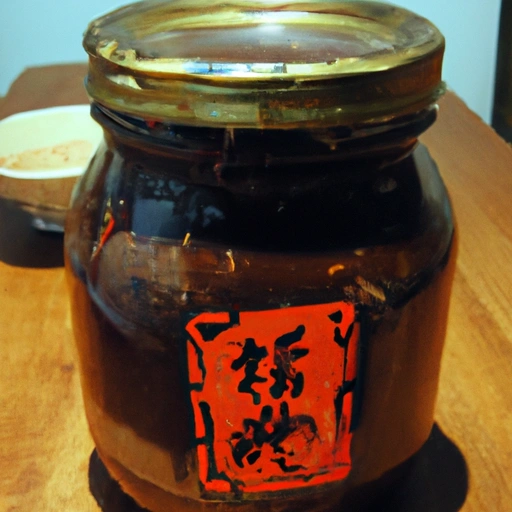Black Bean Sauce
Description

Black bean sauce is a popular condiment in Asian cuisine, particularly Chinese cooking. Made from fermented black soybeans, also known as douchi, this sauce is known for its deep, savory umami flavor. It's a thick, dark paste that can be bought ready-made or prepared at home, and it typically contains ingredients such as soybeans, garlic, ginger, and occasionally sugar and five-spice powder. It's used in various recipes, ranging from stir-fry dishes to marinades, adding a rich depth of flavor to meats and vegetables alike.
Common uses
Commonly found in Asian supermarkets and stores around the world, black bean sauce serves as a versatile flavor enhancer in many dishes. It is often used as a base for stir-fry sauces, as well as for braising meats and vegetables. The sauce is also a key ingredient in classic recipes such as Mapo Tofu, Black Bean Chicken, and Jajangmyeon (Korean black bean noodles). Its robust flavor pairs well with the milder taste of ingredients like tofu and seafood.
Nutritional value
Calories
A typical serving of black bean sauce (1 tablespoon or about 15 ml) contains approximately 20 calories.
Protein
Black bean sauce provides around 1 gram of protein per serving.
Fat
There is a minimal amount of fat in black bean sauce, generally less than 1 gram per serving.
Carbohydrates
Carbohydrates in black bean sauce are mostly from sugars, totaling around 3 grams per serving.
Vitamins
While not a significant source of vitamins, black bean sauce may contain small amounts of B vitamins due to the fermentation process.
Minerals
Black bean sauce can be a source of minerals such as iron and magnesium, but the amounts can vary based on the brand and preparation.
Health benefits
As a fermented food, black bean sauce may offer digestive benefits due to the presence of probiotics. The fermentation process also helps in breaking down proteins, making them easier to digest. Additionally, the soybeans used in the sauce are a good source of antioxidants and phytochemicals, which can contribute to overall health.
Potential risks
Black bean sauce is high in sodium, which can be a concern for individuals with hypertension or those monitoring their salt intake. As with many fermented and processed foods, it should be consumed in moderation. Additionally, those with soy allergies should avoid black bean sauce, as soy is the primary ingredient.
Common recipes
Recipes that commonly include black bean sauce range from Chinese stir-fried vegetables and meats to Korean Jajangmyeon. It is also used in dipping sauces and as a marinade for grilling.
Cooking methods
Black bean sauce is used in various cooking methods including stir-frying, steaming, and braising. It can be incorporated into dishes at the beginning to build a foundation of flavor or added near the end to enhance the dish's taste profile.
Pairing with other ingredients
Its savory quality pairs well with robust flavors such as garlic and ginger, as well as with the sweetness of bell peppers and onions. It also complements the delicate flavors of steamed fish and tofu dishes.
Summary
Black bean sauce is a rich, savory condiment that adds depth and complexity to a variety of dishes. Whether used in traditional Asian cuisine or adapted for fusion dishes, its umami flavor enriches the culinary experience. With its historical roots and modern applications, black bean sauce remains a favorite in kitchens around the world.